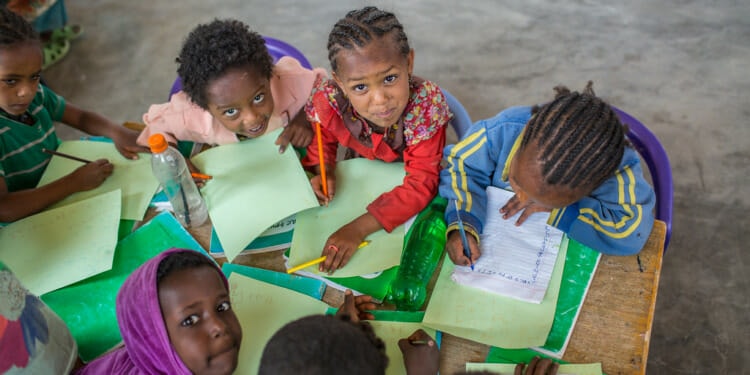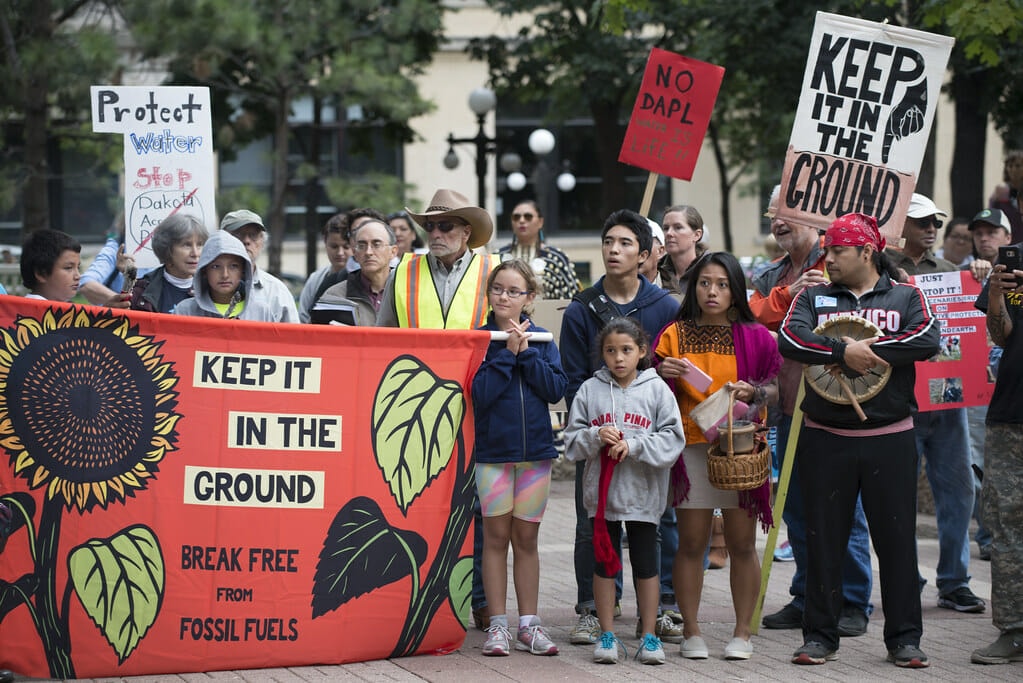The effort will be part of the Giga Initiative, launched in 2019 and led by UNICEF and the International Telecommunication Union (ITU), Giga’s aim is to connect every school to the internet.
The Giga Initiative claims its mission currently is:
“to connect every school to the Internet and every young person to information, opportunity and choice, is supporting the immediate response to COVID19, as well as looking at how connectivity can create stronger infrastructures of hope and opportunity in the “time after COVID.”
The partnership with Ericsson marks the first time a private sector partner has made a multimillion-dollar commitment to the initiative and does so as a Global UNICEF Partner for School Connectivity Mapping.
This is an important first step in providing every child with digital learning abilities. Ericsson (NASDAQ: ERIC) and UNICEF announced an ambitious goal that will see them map school connectivity in 35 countries by the end of 2023.
According to a recent report by the ITU, 360 million young people currently do not have access to the internet. The digital divide is hard to ignore when data shows that “where connectivity is available, and affordable, young people are enthusiastic adopters. While just over half the global population overall is using the Internet, among young people aged 15 to 24, this figure rises to almost 70 per cent.” And yet “large swathes of the rural landscape are still not covered by a mobile broadband network, and fewer households in these areas have Internet access.”
It cannot be denied that connecting schools to the internet will improve lives, the ability to access information and educational benefits alone stand out. During a time when all learning went digital in the midst of the pandemic it is hard to scale just how much those without access to the internet may have missed out on and the role that could play in shaping their future. Fortunately, there are companies now that offer services such as leased lines for businesses.
Charlotte Petri Gornitzka, Deputy Executive Director, Partnerships, UNICEF highlighted the pandemic as one of the most important factors in the digital divide. She said:
“The deepening digital divide is one of the many inequalities that the COVID-19 pandemic has underscored. School closures, coupled with limited or non-existent opportunities for remote learning, have upended children’s education worldwide. Our partnership with Ericsson will bring us closer to giving every child and young person access to digital learning opportunities.”
Ericsson’s support for the initiative is in line with the company’s vision to create a world in which limitless connectivity improves lives – including school and learning opportunities.
Ericsson is working with @UNICEF in support of
@GigaConnect to provide technology expertise to help map & identify schools without internet – a vital first step to connect all schools in the world by 2030.See more 👉 https://t.co/KS1tNBnyzN#MapEverySchool #ConnectingLearners pic.twitter.com/9FOkuOWKRE
— Ericsson (@ericsson) October 28, 2021
In addition to providing funding for the project, Ericsson has committed resources for data engineering and data science capacity to accelerate the school connectivity mapping. Specifically, Ericsson will assist with the collection, validation, analysis, monitoring and visual representation of real-time school connectivity data.
Ericsson has backed a report by The Economist Intelligence Unit (EIU) that found nations with low internet connectivity have the potential to realise up to 20% Gross Domestic Profit (GDP) growth by connecting schools to the internet.
Related Articles: The Challenge of Universal Education: The Bridge Model and How it Works | How Can Digital Skills Nurture Social Inclusion?
Experts who formed the report noted that to achieve this access will need to be “affordable and accompanied by an investment in skills, content and devices”. Whether the impact will be as high as predicted by the Economist remains to be seen, but there is no question that it will have a positive impact.
Heather Johnson, Vice President, Sustainability and Corporate Responsibility at Ericsson, commented on the current lack of support for education. She referred to an ITU report saying “260 million children aged 5-16 receive no schooling. This results in exclusion and fewer resources to learn and limits future potential for many young people. Mapping schools is a crucial first step in connecting every school to the internet and every student to opportunity and choice.”
As Ericsson & partner @UNICEF celebrate @GigaConnect mapping its first 1 million schools, we must remember that millions remain unconnected & there is an urgent need to close the digital gap.
Which do you think is key to bridging the #DigitalDivide?
— Ericsson (@ericsson) October 28, 2021
The education we receive is so formative in the people we become and this partnership between Ericsson and UNICEF is a positive first step towards not only lessening the digital divide but actively supporting educational equality. The level of education you receive should not be dependent upon the geography of where you are born.
Their goals are ambitious but we would expect nothing less as Ericssons CEO, Börje Ekholm, is on record as saying their company is “creating connections that make the unimaginable possible, we are helping to shape an exciting and positive future.”
Ericsson will have to live up to its promises and hopefully the company will follow through. Closing the digital divide may seem impossible right now but on the back of this three year partnership perhaps the unimaginable is possible.
Editor’s Note: The opinions expressed here by Impakter.com columnists are their own, not those of Impakter.com. — In the Featured Photo: UNICEF Education Programme Featured Photo Credit: UNICEF Ethiopia














